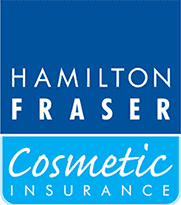
The way in which we live our lives has seen many changes over the last 10 months, with lockdown and social distancing becoming the norm.
We have had to get to grips with remote working, home-schooling and less trips to the shops in order to contribute to our nationwide battle against the coronavirus. However, it’s not just our actions that have been altered, but our conversations too, as the COVID-19 pandemic has influenced the regular use of various words to become part of our everyday vocabulary!
For many people ‘Maskne’ has become an all too familiar word and is now another phrase that rolls off the tongue without a second thought.
We’re sure that until recently a lot of people would have had no idea that mask-wearing can lead to spots! But as acne can commonly lead to scarring and undo all the hard work behind a good skincare routine, it’s a condition that many people now take steps to avoid.
Maskne is quite simply acne that has been caused by the frequent wearing of face masks. Although an important part of helping to reduce the spread of the virus, face masks provide the perfect environment for causing breakouts of acne.
The warm and humid conditions under your mask can trap sebum within the pores and provide the perfect environment for bacteria to thrive. This can lead to clogging of the pores, inflammation and the development of pus-filled spots and pimples.
Dry skin, redness and irritation can develop where a face mask fits more snuggly to the skin (such as across the nose), contributing to frequent flare ups. And just like typical acne, those who are affected by underlying conditions such as rosacea and eczema will find that Maskne can make it worse.
Maskne can also be associated with contact dermatitis if the mask causes sensitivity or an allergic reaction, resulting in a red rash, irritation and blisters.
Luckily, there are things we can do to reduce the chance of developing Maskne like sourcing masks that are made from natural fibres and are more breathable for the skin and reduce the build-up of moisture and humidity. Wearing a fresh, clean mask every day will significantly help reduce build-up of oil and dirt on the skin.
Cleansing the skin regularly is an important part of dealing with acne-prone skin and ensuring this process is done twice a day can also help with Maskne, especially upon arriving home and removing your mask. Avoid wearing too much make-up while wearing a mask as this worsens blockage of pores caused by mask-wearing.
To help with dryness, applying a daily non-comedogenic moisturiser can help to keep the skin soft and supple. Products that are non-comedogenic do not clog the pores and are more beneficial for acne-prone skin. The most effective treatment for Maskne are skincare products which contain exfoliants like salicylic acid, ingredients which control oil production and ingredients which have antimicrobial properties.
Once scarring occurs after acne lesions have gone, pigment inhibitors can be used to help reduce the appearance of scars but it’s best to avoid picking or irritating spots to help reduce acne scarring.
If Maskne and skin sensitivity from mask wearing is causing you discomfort, The Bloom Clinic may be the rescue remedy you need. As the vaccine continues to roll out and the pandemic is in its last phase (finger’s crossed), our masks will still need to be worn for a while yet.
In the meantime, The Bloom Clinic can introduce you to their ranges of medical grade skincare which have high-quality, active ingredients to help erase the effects of Maskne.
Back to blog









